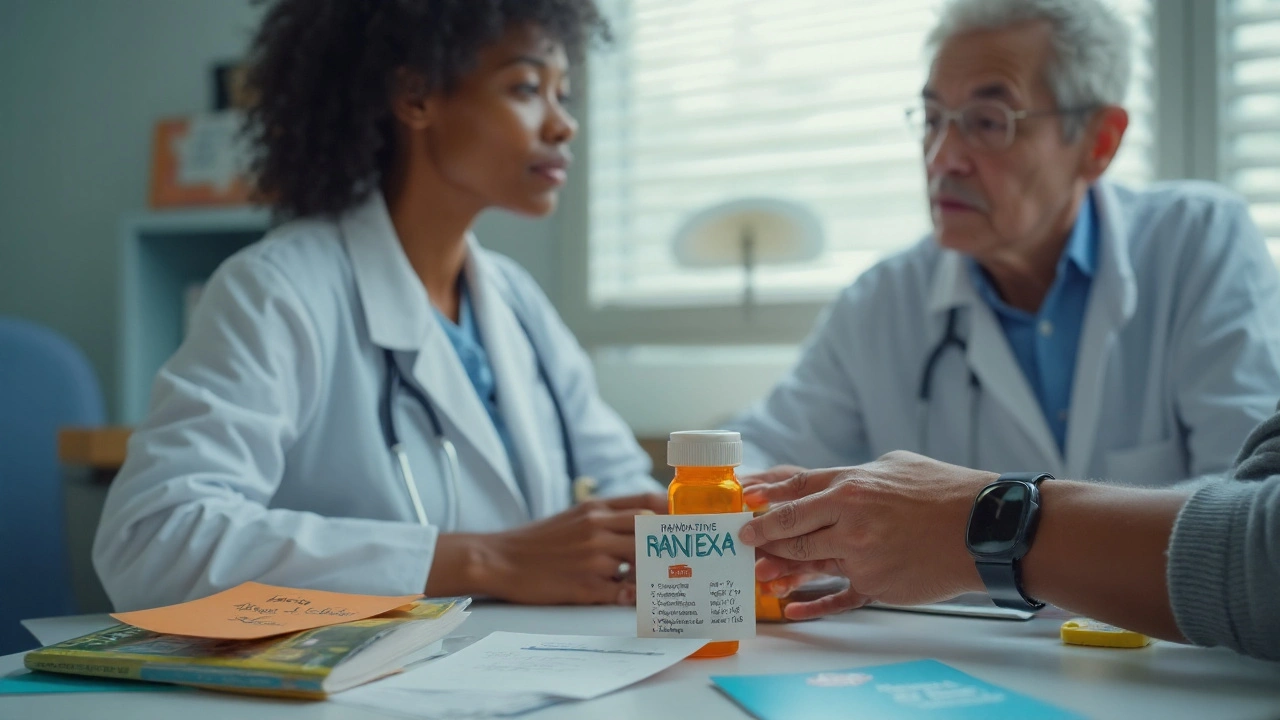Angina Medication Guide: What Works and How to Use It
Got chest pain when you walk up stairs or stress out? That’s angina, a signal that your heart isn’t getting enough oxygen. The good news is medicines can keep the pain away and protect your heart. Below you’ll see the most common pills, how they act, and simple steps to take them safely.
Common Angina Medications
Nitroglycerin is the go‑to for quick relief. A tiny tablet under the tongue or a spray works in minutes to widen blood vessels, easing the pain. Keep a dose handy—most doctors prescribe at least one for emergencies.
Beta blockers (like metoprolol or atenolol) slow your heart rate and lower blood pressure. By doing that, the heart needs less oxygen, which cuts down on angina attacks. They’re taken once or twice a day, and you’ll feel a steadier pulse after a few weeks.
Calcium channel blockers (such as amlodipine or diltiazem) relax the walls of the arteries. This improves blood flow and can help if nitroglycerin isn’t enough on its own. Some people experience swelling in the ankles, so watch for that and tell your doctor.
Long‑acting nitrates (isosorbide mononitrate, for example) keep vessels open all day. They’re useful for people who get angina often, but you need a nitrate‑free period at night to avoid tolerance.
Ranolazine works differently—it helps heart cells use oxygen more efficiently. It’s an option when other drugs don’t control symptoms fully. Side effects can include dizziness or constipation, so stay alert when you start.
How to Take Your Angina Medicine Safely
First, follow the dosing schedule your doctor gave you. Missing a dose can bring back pain, while doubling up can cause a dangerous drop in blood pressure.
Combine meds with lifestyle tweaks. Cut back on caffeine, quit smoking, and aim for regular, moderate exercise. Even a short walk each day can lower the frequency of attacks.
Watch for warning signs. If nitroglycerin doesn’t help after three tries, or if you feel faint, chest tightness lasting more than a few minutes, call emergency services right away.
Store your pills properly. Nitroglycerin tablets stay effective only if kept away from heat and light—store them in the original container, not in a plastic bag.
Finally, keep a list of all your medicines, including over‑the‑counter drugs. Some pain relievers, like ibuprofen, can irritate the stomach and raise blood pressure, which may worsen angina.
Talking with your doctor regularly is key. Ask about any new symptoms, side effects, or if you need a dosage tweak. With the right plan, angina doesn’t have to hold you back.
Ranexa (Ranolazine) 2025 Guide: Uses, Dosage, Side Effects, Interactions, and Alternatives
- Benjamin Aghaki-Allen
- Health
- 7 comment
Clear 2025 guide to Ranexa (ranolazine): what it treats, how to take it, side effects, interactions, who should avoid it, and safe alternatives, with practical tips.
VIEW MORECategories
Popular posts
-
Dose Titration Strategies to Reduce Medication Side Effects
Benjamin Aghaki-Allen -
Fiber for GI Health: Soluble vs. Insoluble Choices
Benjamin Aghaki-Allen -
Direct-to-Consumer Generic Pharmacies: How Much You Really Save vs Insurance
Benjamin Aghaki-Allen -
Fluoxetine Activation: Managing Anxiety, Insomnia, and Optimal Timing
Benjamin Aghaki-Allen -
Long-Term Effects of Tamoxifen on Breast Cancer Survivors
Benjamin Aghaki-Allen
Popular tags
- side effects
- medication safety
- online pharmacy
- generic drugs
- medication errors
- drug side effects
- dietary supplement
- gut health
- blood pressure medication
- alternatives
- medication adherence
- Hatch-Waxman Act
- drug interactions
- weight loss
- dosage
- weight management
- quality of life
- cheap generic Zoloft
- affordable sertraline
- Claritin
